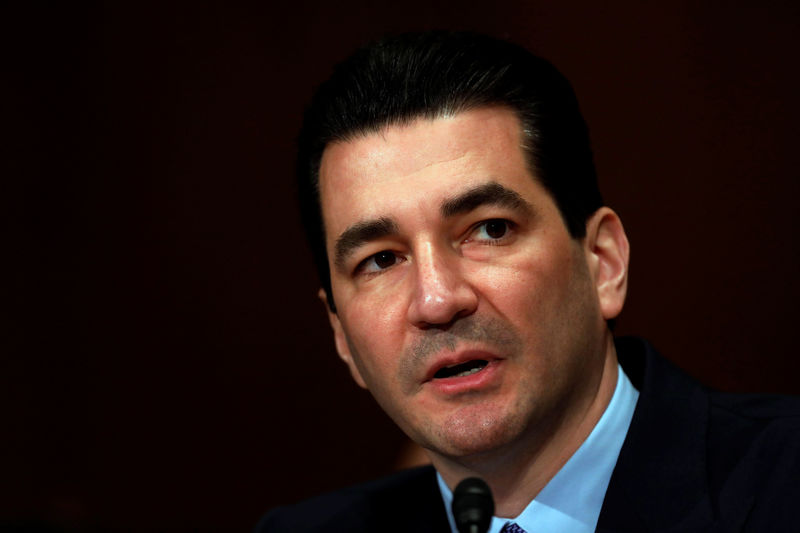(Reuters) - Democratic senators questioned President Donald Trump's nominee to lead the U.S. Food and Drug Administration, Dr. Scott Gottlieb, over his ties to the pharmaceutical industry on Wednesday, with one citing "a level of discomfort" over his nomination.
Democrats on the Senate Committee on Health, Education, Labor and Pensions questioned whether Gottlieb's ties to the pharmaceutical industry would compromise his ability to act impartially, ahead of a vote on whether to advance his nomination to the full Senate.
Gottlieb, a former FDA deputy commission who is a partner at a large venture capital fund and sits on the boards of multiple healthcare companies, has advocated loosening requirements needed for approval of new medical products.
His nomination is generally expected to be approved. The hearing also covered Gottlieb's views on issues ranging from clinical trials to the opioid epidemic and vaccines.
Senator Chris Murphy said Democrats had "a level of discomfort" with Gottlieb's nomination, not just because of his private industry background but also because of his prior activity as a political adviser to Republican presidential candidates and opposition to the Affordable Care Act.
"The worry about impartiality is certainly connected to the private sector experience but it's also to your very deep political involvement as well," Murphy said.
Gottlieb, 44, acknowledged the concern, but said he would "work hard to make sure I preserve my impartiality."
In an ethics disclosure form filed last month Gottlieb said he would resign from multiple corporate boards and divest his healthcare company holdings.
Republicans on the committee said Gottlieb's background would provide him with valuable insight into the industry that the FDA regulates.
Gottlieb said his goal was to implement the provisions in the recently passed 21st Century Cures Act that among other things require the FDA to consider ways to streamline the clinical trial process. He said he would be in favor of "clinical trial constructs that don't require the tight randomization that current clinical trials do."
Gottlieb also said he would be willing to challenge the view that vaccines cause autism, a theory that has been widely debunked by vaccine experts. In January Trump's transition team floated the idea of forming a panel on autism.
In 2014 Trump said in a tweet that he believed in vaccinations "but not massive, all at once, shots" and that "Govt. Should stop NOW!"
Gottlieb said the question of whether vaccines cause autism "is one of the most exhaustively studied issues in medicine" and that there is no causal link between vaccines and autism. Pressed on whether he would challenge contrary views, Gottlieb said he has a history "of not being shy about speaking truth to power and making my views known."
Gottlieb called the opioid epidemic "a public health emergency on the order of Ebola and Zika." He said it is the biggest health crisis facing the FDA and that solving the problem would require a broad public health response.
Gottlieb, who held a financial interest in the vape shop Kure, said some e-cigarettes may have the potential to wean smokers off combustible cigarettes and be less harmful.

"An e-cigarette or vaping product might be a good smoking cessation tool while a chocolate chip-flavored e-cigarette might not be," he said. Ultimately, he said, science will tell where to draw that line.